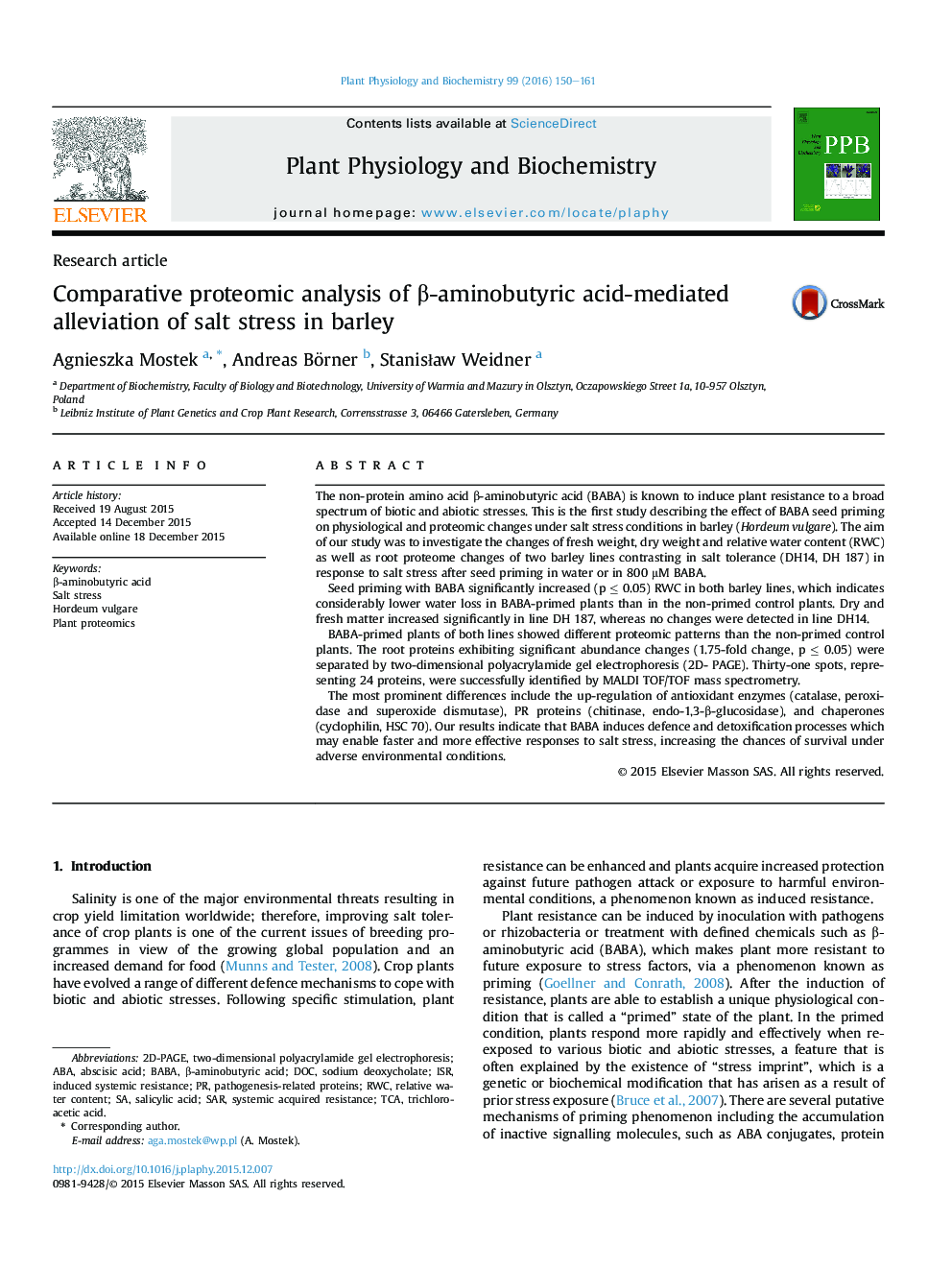| Article ID | Journal | Published Year | Pages | File Type |
|---|---|---|---|---|
| 2014798 | Plant Physiology and Biochemistry | 2016 | 12 Pages |
The non-protein amino acid β-aminobutyric acid (BABA) is known to induce plant resistance to a broad spectrum of biotic and abiotic stresses. This is the first study describing the effect of BABA seed priming on physiological and proteomic changes under salt stress conditions in barley (Hordeum vulgare). The aim of our study was to investigate the changes of fresh weight, dry weight and relative water content (RWC) as well as root proteome changes of two barley lines contrasting in salt tolerance (DH14, DH 187) in response to salt stress after seed priming in water or in 800 μM BABA.Seed priming with BABA significantly increased (p ≤ 0.05) RWC in both barley lines, which indicates considerably lower water loss in BABA-primed plants than in the non-primed control plants. Dry and fresh matter increased significantly in line DH 187, whereas no changes were detected in line DH14.BABA-primed plants of both lines showed different proteomic patterns than the non-primed control plants. The root proteins exhibiting significant abundance changes (1.75-fold change, p ≤ 0.05) were separated by two-dimensional polyacrylamide gel electrophoresis (2D- PAGE). Thirty-one spots, representing 24 proteins, were successfully identified by MALDI TOF/TOF mass spectrometry.The most prominent differences include the up-regulation of antioxidant enzymes (catalase, peroxidase and superoxide dismutase), PR proteins (chitinase, endo-1,3-β-glucosidase), and chaperones (cyclophilin, HSC 70). Our results indicate that BABA induces defence and detoxification processes which may enable faster and more effective responses to salt stress, increasing the chances of survival under adverse environmental conditions.
